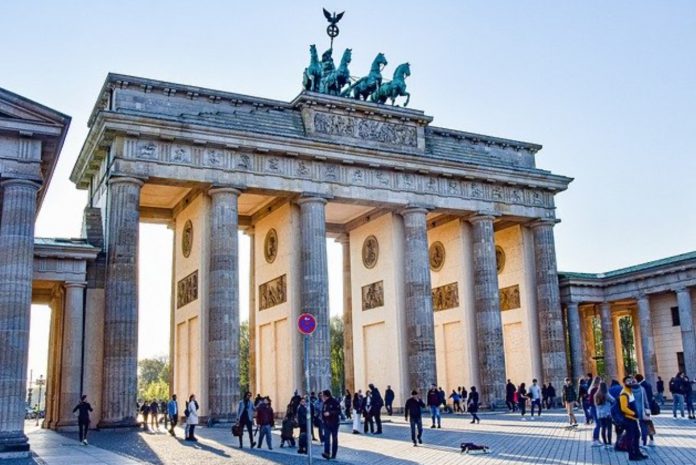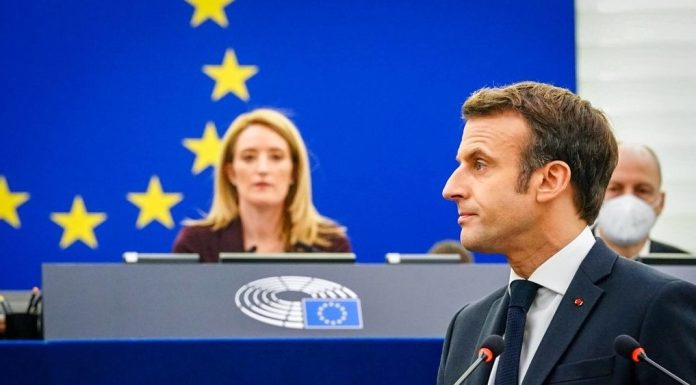By Pieter de Jonge, a Dutch historian and publicist
2021 has been dubbed “Superwahljahr”, or “super election year”, in Germany: elections are being held in six states and on 26 September, there will be federal elections. With Chancellor Angela Merkel stepping down, Germany’s future leadership is up for grabs. Germany is the largest EU member state, if not the leading one and its “paymaster”. Therefore, the outcome of September’s elections is bound to carry consequences for both the European Union and the global stage.
To be “Weltoffen” or “open to the world” is a popular term in German politics, contrasting with how in other European countries, the mindset is sometimes more oriented to ‘going it alone’. Supposedly, EU politics is as important as domestic politics in Germany.
Nevertheless, with less than six months left until the federal elections, several German political parties are still focused on sorting out who’ll be their “Spitzenkandidat”, or lead candidate, to succeed Merkel as Chancellor. And those that have already picked one, are still working on their party manifestos, leaving their policies for the EU as an afterthought.
Self-centred and ever less ideological mainstream parties
Angela Merkel’s Christian Democratic Union (CDU), which became the largest party at the last elections, in 2017, took a whole year to decide on a new federal party chairman, until Armin Laschet was chosen for this, in January. He serves as Prime Minister of Germany’s most populous state, North Rhine –Westphalia.
The CDU is running in all German states, except for Bavaria, where their sister party, the CSU, is active. This cooperation has ensured that the Christian democrats have remained the country’s largest party for most of the post-war period.
There is one disadvantage, however: there can only be one lead candidate to become Chancellor. Two times, the choice fell upon the chairman of the CSU, in 1980 and 2002. CDU/CSU lost both times. At the moment, CDU and CSU are still struggling whether to rally behind Laschet or behind Markus Söder, the Prime Minister of Bavaria, and leader of the CSU.
The Social Democratic Party of Germany (SPD) never truly had a party leader since Gerhard Schröder lost the elections of 2005. Disputes over leadership have taken priority over the ideological direction. A complication is that the party has been in a so-called “big coalition” with the CDU-CSU for three out of four terms since 2005. The SPD’s lead candidate to become Chancellor is Olaf Scholz, since 2018 German Finance Minister, and a former Mayor of Hamburg. His ideology is rather murky.
The liberal Free Democratic Party (FDP) used to have great ideological debates between its left wing and its right wing. In 1982, party leader Hans-Dietrich Genscher decided to exchange the larger coalition partner, SPD, for the CDU, halfway during the office term. This caused many left-wing liberals to cancel their membership in protest, which drove the FDP to the right. Since then, the FDP has been a one-man show really, revolving around its party leader. Genscher, who stepped down as federal Foreign Minister in 1992, was followed by Guido Westerwelle from 2001 until 2011. The current leader, Christian Lindner, has been in charge since 2013. It has become rather rare for FDP politicians to propagate and defend their liberal ideology, perhaps with the exception of their opposition to Covid measures, which seems to reward them in the polls. Over the longer term however, since the turn of the century, the party has come to rely more on snappy one-liners. Everyone knows who chairs the party, no one what it really stands for.
The Greens (die Grüne) were founded at the end of the 1970s as an ideology-driven party, representing both the peace and the environment movements. The nineties witnessed inner divisions between “Fundis”, who refused to make policy concessions, and “Realos”, who considered compromise and professionalization inevitable in order to get into government and change things for the better. The Greens introduced a system of joint leadership, whereby factions as well as state and national parties are being led by two chairpersons, always with at least one woman. This practice has been adopted by the other two left-wing parties.
This however also contributed to the question which of the two should become lead candidate for Chancellor. The two current green leaders are Robert Habeck, who has served as a State Minister in Schleswig-Holstein, and Annalena Baerbock, a federal MP since 2013 without any government experience. Both are Realos, as the Fundis seem to have been sidelined.
There frankly aren’t all that many ideological differences between CDU/CSU, SPD, FDP and the Greens. Under Angela Merkel, the CDU have abandoned many of its traditionally conservative positions – support for conscription, nuclear energy and “family values”. The Greens have been concentrating on becoming acceptable coalition partners. All of these four parties really support “reconciling economy and ecology”, with the liberals of course still stressing the former and the Greens the latter. Many politicians of those four parties are exchangeable.
Only the two parties on the fringes still have actual ideological internal discussions.
The far-left Die Linke (‘The Left’) is divided between ideological die-hards and pragmatics that want to get into office.
The Alternative for Germany (AfD) was founded in 2013 by former members of CDU and FDP. It was meant to become a liberal-conservative party, but in July 2015, its founders lost a power struggle with those keen to steer the party the right. The AfD has since turned into a full-on rightwing populist force, now just having come out for a German exit from the EU, or “Dexit”. At the federal level, some attempts were made to steer back to liberal conservatism, but so far without much success.
The other parties seem unwilling to form a coalition with the Die Linke or the AfD at the federal level – Die Linke are governing at the state level. Even if the SPD and the greens have abandoned their taboo on governing with Die Linke, this remains rather unlikely.
This all means that German voters effectively have a choice between four potentially governing parties that no longer seem to care much about ideology anymore and that two parties with – controversial – ideologies will end up in opposition. It may explain the drop in German voter turnout.
What does this all mean for German political parties’ stance on EU policy?
Germany truly is Europe’s economic powerhouse. It also is the dominant member state within the EU, together with France. Whatever happens in Germany, has consequences for other European countries.
The lack of German ideological debate among mainstream parties is also visible when it comes to EU policy. Back in the days of German Chancellor’s Adenauer, Brandt, Schmidt and Kohl, there was a firm ideological commitment to the West and to the European Union.
Schröder was more focused on economically reforming Germany – then called “the sick man of Europe”. The introduction of the euro in 1999 and the “great enlargement” of the EU to the East in 2004 happened at Schröder’s watch, but the groundwork had already been laid by Kohl.
Merkel really has pursued the “steady as you go” or “weiter so” – option, avoiding to rock the boat with great projects. “Keine Experimente ”. “No experiments”. This is a reflection of a profound consensus in Germany policy circles. Any big decisions – regarding Eurozone bailouts or refugee policy – were always reactive and never proactive. A big European initiative hasn’t come from Germany since Kohl.
If Merkel hadn’t been Chancellor, it is unlikely that anyone else would have risked the monetary union.
Of course, it may well be that things are changing. During the Covid crisis, the EU has come under fire from German mainstream politicians for its vaccine procurement management. One of those criticising the EU for this was Markus Söder, otherwise not known for his firm views. Importantly, also policy has departed from the EU consensus. In a noteworthy development, Bavaria, under its PM, Markus Söder, has decided to agree a deal to acquire Russian “Sputnik”-vaccines.
Even if the Russian vaccine still would need to be approved by European regulators, this is a clear break with the EU consensus and the German policy consensus not to rock the boat when it comes to EU policy. Is this an omen?
Disclaimer: www.BrusselsReport.eu will under no circumstance be held legally responsible or liable for the content of any article appearing on the website, as only the author of an article is legally responsible for that, also in accordance with the terms of use.













